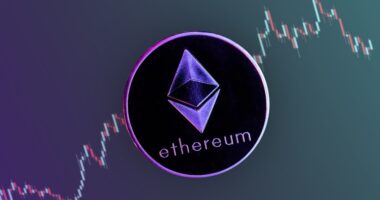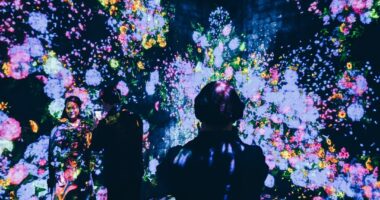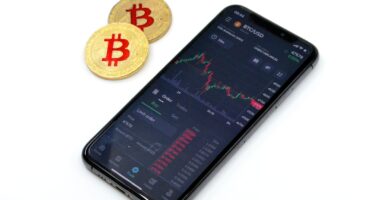Non-fungible tokens (NFTs) are unique digital assets that represent ownership or authenticity of specific items or content, such as artwork, videos, and music. Unlike fungible cryptocurrencies, NFTs are not interchangeable and possess individual values. They are stored on blockchain technology, which ensures their authenticity and prevents duplication or counterfeiting.
In the music industry, NFTs are transforming how artists create, distribute, and monetize their work. Musicians can tokenize their music as NFTs, offering fans exclusive access to limited edition content or experiences. This direct-to-fan approach allows artists to bypass traditional intermediaries, granting them greater control over their work and increased profit shares.
NFTs also enable artists to forge stronger connections with their audience through unique and personalized offerings. NFTs provide artists with new avenues for creative expression beyond traditional audio formats. Musicians can incorporate visual art, animations, and interactive elements into their NFTs, creating immersive, multi-sensory experiences.
This opens up opportunities for collaboration with visual artists and designers, as well as the creation of digital collectibles and merchandise. As a result, NFTs are empowering musicians to explore innovative ways of presenting and sharing their music, contributing to a more diverse and engaging musical landscape.
Key Takeaways
- NFTs are non-fungible tokens that are revolutionizing the music industry by providing a new way for artists to monetize their work and connect with fans.
- Creating and selling music as NFTs involves minting the music as a unique digital asset, often accompanied by exclusive content or experiences, and then selling it on NFT marketplaces using blockchain technology.
- The benefits of monetizing music as NFTs include direct artist-fan interaction, potential for increased revenue, and the ability to retain ownership and control over the music. However, drawbacks include environmental concerns and the potential for exclusivity to limit access to music.
- Successful case studies of NFT music releases include Kings of Leon’s album release and 3LAU’s auction of an album and exclusive experiences, both of which generated significant revenue and fan engagement.
- NFTs are impacting music ownership and copyright by introducing new ways for fans to collect and own music, as well as raising questions about ownership and royalties in the digital age.
- The future of NFT music holds potential for musicians to continue exploring new revenue streams, connecting with fans, and experimenting with creative ways to release and distribute music.
- Tips for musicians looking to enter the NFT market include understanding the technology and market, creating unique and valuable content, and engaging with fans to build a community around their NFT music releases.
The process of creating and selling music as NFTs
Choosing the Right Platform
Artists need to select a suitable platform or marketplace for minting and selling their NFTs. There are several NFT marketplaces specifically tailored for music, such as Catalog, Foundation, and Zora, which provide tools for artists to upload their music, create NFTs, and set up auctions or direct sales. These platforms also offer features for artists to customize their NFTs with visual artwork, unlockable content, and royalties for future resales.
Minting and Customizing NFTs
Once the platform is selected, artists can proceed to mint their music as NFTs by uploading the audio files and accompanying visual assets. It’s essential for artists to consider the exclusivity and scarcity of their NFTs, as limited edition releases often attract more attention and higher bids from collectors. Artists can also choose to bundle their music NFTs with additional perks or rewards for buyers, such as access to live events, merchandise discounts, or personal shoutouts.
Promoting and Engaging with Fans
After minting the NFTs, artists can promote their releases through social media, newsletters, and collaborations with influencers or other artists. Building anticipation and excitement around the NFT release can help generate interest and drive up the value of the tokens. Once the NFT auction or sale is live, artists can engage with their fans directly through the platform’s messaging or commenting features, fostering a sense of community and connection around the music NFTs.
Maximizing Success
Overall, the process of creating and selling music as NFTs requires careful planning, creativity, and engagement with fans to maximize the impact and success of the releases.
The benefits and drawbacks of monetizing music as NFTs
Monetizing music as NFTs offers several benefits for artists, including increased control over their creative work, direct engagement with fans, and potential for higher earnings. By tokenizing their music, artists can retain ownership of their intellectual property and have more autonomy in how they distribute and monetize their work. This is particularly advantageous for independent musicians who may not have access to traditional channels of promotion and distribution.
Additionally, NFTs enable artists to establish direct connections with their fans, offering them exclusive access to limited edition releases and personalized experiences that foster loyalty and support. Furthermore, monetizing music as NFTs can result in higher earnings for artists compared to traditional streaming or sales revenue. Since NFTs are sold directly to collectors through auctions or direct sales, artists can capture a larger share of the profits without having to split revenues with record labels or streaming platforms.
Additionally, artists can set royalties for future resales of their NFTs, ensuring that they continue to benefit from the appreciation of their work in the secondary market. This provides a more sustainable source of income for artists over time, especially as the value of their music grows with their career. However, there are also drawbacks to consider when monetizing music as NFTs.
One concern is the environmental impact of blockchain technology used to store and trade NFTs, which has been criticized for its high energy consumption. Artists need to weigh the environmental costs against the potential benefits of tokenizing their music and consider alternative eco-friendly platforms or offsetting strategies. Additionally, there is a learning curve for both artists and fans in understanding how NFTs work and how to participate in auctions or sales.
Artists need to provide clear instructions and support for fans who may be new to the world of NFTs in order to ensure a smooth and inclusive experience for everyone involved.
Case studies of successful NFT music releases
Several musicians have successfully leveraged NFTs to release their music in innovative ways, setting new standards for engaging with fans and generating revenue. One notable example is electronic musician 3LAU, who made history by selling an album exclusively as NFTs for $11.6 million. The album, titled “Ultraviolet,” was released in the form of 33 unique NFTs that included unreleased music, special experiences, and bonus content for buyers.
3LAU’s groundbreaking release demonstrated the potential for artists to bypass traditional record labels and directly monetize their music through NFTs while offering fans exclusive perks. Another case study is Grammy-winning band Kings of Leon, who became the first major act to release an album as an NFT. The band offered three types of tokens – one for a special album package, one for exclusive audiovisual art, and one for live show perks – which sold out within hours of release.
Kings of Leon’s successful NFT release showcased how established artists can embrace new technologies to connect with fans in unique ways while generating substantial revenue from their creative work. Furthermore, electronic music producer RAC collaborated with visual artist José Delbo to release an exclusive single as an NFT accompanied by digital artwork. The release included unlockable content such as stems for remixing the track and a virtual meet-and-greet with RAThis collaboration highlighted the potential for musicians to work with visual artists to create immersive experiences that complement their music as NFTs, adding value for collectors and fans alike.
These case studies demonstrate how musicians are embracing NFTs as a means of redefining how they release and monetize their music while offering fans exclusive experiences that go beyond traditional formats. As more artists explore the potential of NFTs in the music industry, we can expect to see further innovation in how music is created, distributed, and experienced by fans.
The impact of NFTs on music ownership and copyright
The rise of NFTs in the music industry has raised questions about ownership rights and copyright implications for both artists and collectors. When an artist tokenizes their music as an NFT, they are essentially creating a digital certificate of ownership that is stored on a blockchain. This certificate represents a unique claim to the original work and may include additional perks or rewards for the buyer.
However, it’s important to note that owning an NFT does not necessarily grant the buyer copyright or intellectual property rights to the underlying music itself. From an artist’s perspective, tokenizing their music as NFTs allows them to retain ownership of their creative work while offering collectors a way to support and engage with them directly. Artists can set terms and conditions for how their NFTs can be resold or shared, ensuring that they maintain control over how their music is experienced by fans.
Additionally, artists can receive royalties from secondary sales of their NFTs, providing them with ongoing compensation for the value of their work in the secondary market. On the other hand, collectors who purchase music NFTs may be motivated by the desire to own a piece of music history or to support their favorite artists. Owning an NFT can provide a sense of exclusivity and connection with the artist, as well as potential financial incentives if the value of the NFT appreciates over time.
However, it’s important for collectors to understand that owning an NFT does not grant them exclusive rights to distribute or reproduce the underlying music without permission from the artist. Overall, the impact of NFTs on music ownership and copyright is reshaping how artists and collectors interact with creative works in the digital age. As more musicians tokenize their music as NFTs, it will be crucial for all parties involved to navigate the legal and ethical considerations surrounding ownership rights and intellectual property in order to ensure a fair and sustainable ecosystem for all stakeholders.
The future of NFT music and its potential for musicians

The future of NFT music holds immense potential for musicians to explore new avenues of creativity, engagement with fans, and revenue generation. As blockchain technology continues to evolve and become more accessible, we can expect to see a wider adoption of NFTs in the music industry by both established artists and emerging talent. This shift towards tokenizing music as NFTs presents an opportunity for musicians to experiment with different formats, collaborations, and experiences that go beyond traditional album releases or live performances.
One area of growth for NFT music is in virtual concerts and live experiences that are exclusively available as NFTs. Musicians can create immersive virtual worlds or interactive environments where fans can engage with their music in novel ways through virtual reality or augmented reality technologies. These virtual experiences can be tokenized as NFTs and offered as limited edition collectibles that provide fans with access to unique performances or interactions with the artist.
Furthermore, musicians can leverage NFTs to create digital collectibles or merchandise that complement their music releases. By collaborating with visual artists or designers, musicians can offer fans exclusive artwork, animations, or physical goods that are tokenized as NFTs. This opens up new opportunities for artists to expand their brand beyond just the music itself and create a more holistic experience for fans who want to support them in meaningful ways.
Additionally, we can anticipate more experimentation with dynamic pricing models and gamification elements in NFT music releases. Artists may explore auction formats that allow fans to bid on exclusive content or experiences related to their music, creating a sense of excitement and competition around limited edition releases. Gamified elements such as unlockable levels or achievements tied to owning certain NFTs can also incentivize fan engagement and participation in artist communities.
Overall, the future of NFT music holds promise for musicians to push boundaries in how they create, distribute, and monetize their work while offering fans unique experiences that transcend traditional formats. As technology continues to advance and creative possibilities expand, we can expect to see a vibrant ecosystem of NFT music that empowers artists and enriches fan interactions in unprecedented ways.
Tips for musicians looking to enter the NFT market
For musicians looking to enter the NFT market, there are several key tips to consider in order to maximize the impact and success of their tokenized releases. Firstly, it’s important for artists to carefully plan out their strategy for creating and selling music as NFTs by considering factors such as exclusivity, scarcity, and additional perks for buyers. Artists should think about what makes their music unique and how they can offer fans an experience that goes beyond just listening to a song.
Secondly, artists should familiarize themselves with different platforms or marketplaces that specialize in minting and selling music NFTs. Each platform offers different features and tools for artists to customize their releases, set up auctions or direct sales, and engage with fans throughout the process. By understanding the capabilities of each platform, artists can make informed decisions about where to release their music as NFTs based on their specific needs and goals.
Thirdly, building anticipation and excitement around the NFT release is crucial for attracting attention from fans and collectors. Artists can leverage social media, newsletters, collaborations with influencers or other artists, and behind-the-scenes content to generate buzz leading up to the release date. Engaging with fans directly through interactive content or Q&A sessions can also help foster a sense of community around the upcoming NFT release.
Furthermore, it’s important for artists to provide clear instructions and support for fans who may be new to participating in NFT auctions or sales. Educating fans about how NFTs work and how they can get involved in purchasing or bidding on music releases will help ensure a smooth and inclusive experience for everyone involved. Lastly, artists should be mindful of the environmental impact of blockchain technology used to store and trade NFTs when choosing a platform for minting their music.
Exploring eco-friendly platforms or offsetting strategies can help mitigate concerns about energy consumption associated with blockchain while still offering fans an engaging experience with tokenized music releases. In conclusion, entering the NFT market as a musician requires careful planning, creativity, engagement with fans, and consideration of ethical implications in order to navigate this emerging landscape successfully.
If you’re interested in learning more about the world of NFTs and how they are revolutionizing the music industry, you should check out the article “Hello World: A Beginner’s Guide to NFTs” on eth-news.com. This article provides a comprehensive overview of NFTs and their potential impact on various industries, including music. It’s a great starting point for anyone looking to understand the basics of NFTs and how they are being used to monetize creative work. (source)
FAQs
What is an NFT?
An NFT, or non-fungible token, is a digital asset that represents ownership or proof of authenticity of a unique item or piece of content, such as artwork, music, videos, or other digital files.
How are musicians using NFTs to monetize their work?
Musicians are using NFTs to sell unique digital assets such as unreleased music, concert footage, or exclusive access to virtual events directly to their fans. By creating limited edition NFTs, musicians can generate revenue and engage with their fan base in new and innovative ways.
What are the benefits of musicians selling their work as NFTs?
Selling music as NFTs allows musicians to retain more control over their work and directly connect with their fans. It also provides a new revenue stream and the potential for increased value over time as the NFT market continues to grow.
How do fans benefit from purchasing music NFTs?
Fans who purchase music NFTs not only gain access to exclusive content and experiences, but also have the opportunity to support their favorite artists directly. Additionally, owning a music NFT can provide a sense of ownership and authenticity in the digital age.
What are some potential challenges or risks associated with NFT music?
Some potential challenges and risks associated with NFT music include the environmental impact of blockchain technology, the potential for copyright infringement, and the volatility of the NFT market. Additionally, there may be concerns about the exclusivity and accessibility of music NFTs for fans.





